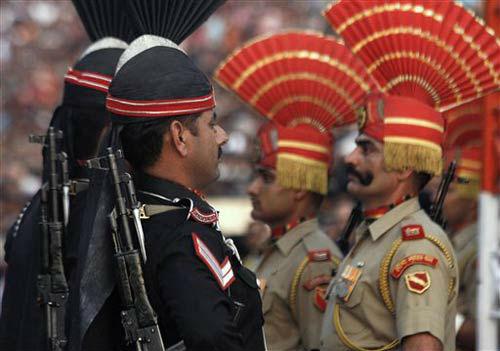India and Pakistan must tread the long hard road to peace
Although the anniversary of India and Pakistan's independence from Britain has inevitably recalled the terrible events which followed partition, it should also remind the two countries’ politicians that the common bonds between their people go much deeper than their love of cricket

"When we open our borders to art, peace comes along,” begins a video to celebrate the 70th anniversary of India and Pakistan securing independence from Britain. The "peace anthem" by the Facebook group Voice of Ram unites the two countries' national anthems and features singers from both.
The need for such an initiative is a reminder of the tensions that still exist today between two enemies seven decades after their partition. Media reports have revealed a stark generational divide. Many young people growing up in both countries assumed they had always hated each other and had little sense of their common roots before the euphoria of independence was eclipsed by the catastrophe of partition. New borders, hastily drawn up by the British Government in just five weeks, left an estimated 12 million Muslim, Hindu and Sikh refugees on the wrong side of the line as the largely-Muslim state of Pakistan was born. The under-powered new authorities were unable to cope with one of the biggest migrations in history; the result was sectarian violence and horrific atrocities in which up to one million people died.
Relations between India and Pakistan have never recovered; there has been no reconciliation process. However, the anniversary has allowed old people who remember 1947 to recall the two countries’ shared history. Amid the carnage after partition, there were remarkable acts of bravery and kindness as people from different communities helped each other survive or cross borders.
India has for the most part enjoyed a noisy democracy since, keeping the army at bay. In contrast, Pakistan’s government has been punctuated by military rule and no prime minister has completed a full term. The two countries fought brief wars over Kashmir and East Pakistan. Today there are territorial disputes and acts of cross-border terrorism. There is even a nuclear arms race; both countries have more than 100 warheads. India’s economic success only serves to make Pakistan more nervous.
The two countries, which both have huge inequality and poor public services, would benefit enormously from closer economic links.
Previous attempts by politicians to make peace have normally been rudely interrupted. Elections in Pakistan and India over the next two years will make it harder for the two rivals to move closer together; politicians will be tempted to play to the gallery by adopting a tough line against their neighbour. After India forged closer links with the United States, Pakistan did the same with China, a potentially dangerous new factor in complex relationship between the estranged twins doomed to share a subcontinent.
Although the anniversary has inevitably recalled the terrible events which followed partition, it should also remind the two countries’ politicians that the common bonds between their people go much deeper than their love of cricket. More emphasis on cultural links and less on religious differences would provide hope that reconciliation and the peaceful coexistence envisaged in 1947 might one day be possible. But it will be a long, hard road ahead.

Join our commenting forum
Join thought-provoking conversations, follow other Independent readers and see their replies